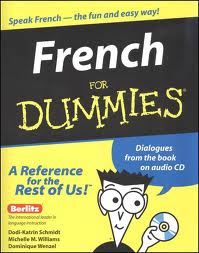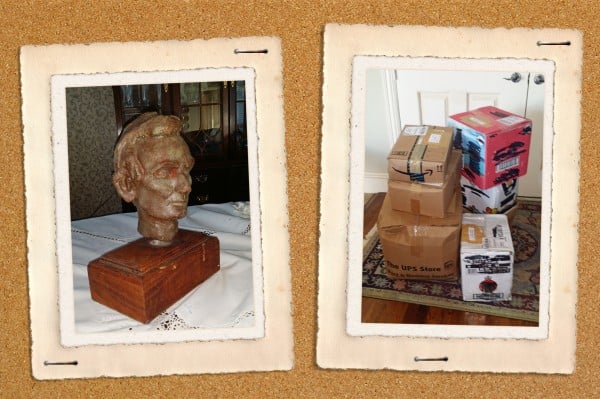 Later this summer, my husband Murry and I are going to Europe. Half the time we’ll spend in France and the other half in Germany.That means, summer language brush up.
Later this summer, my husband Murry and I are going to Europe. Half the time we’ll spend in France and the other half in Germany.That means, summer language brush up.
I have the I Speak French and the I Speak German Apps on my iPhone. Plus, I have been working my way through both French for Dummies and German Phrases for Dummies.
I’m hoping my language preparation will help me avoid a repeat of the bad experiences I’ve had in the past.
For example, the time, in Rome, when a health situation developed for which I did not have the necessary vocabulary.
I stood at the counter at the back of the farmacia trying to pantomime my problem for the young pharmacist. He kept turning his chin this way and that like a perplexed cocker spaniel. Several Italians gathered to observe the American woman’s game of charades. Finally one of them said, “Ah, laxativo!” They all nodded at one another and beamed encouragingly at me.
I slunk out with my fiber packets in a brown bag, not meeting anyone’s eyes.
I’ve developed a list of sentences for every occasion. This seems like a faster path than actually learning grammar. Here is a sample from my personal phrase list:
Von wo fahrt der Zug nach Frankfurt zu verlassen? (From where does the train for Frankfurt leave?)
The only problem will come when I try to say fahrt with a straight face.
Wo is die Damentoilette? (Where is the women’s bathroom?)
Bitte sprechen Sie langsamer. (Please speak more slowly)
Wir haben einen platten Reifen. Konnen Sie helfen? (We have a flat tire. Can you help?)
Ich glaube ich bin verloren. Konnen Sie mire helfen? (I think I’m lost. Can you help me?)
Verkaufen Sie die Erdnuss m und m ‘s?(Do you sell peanut M and M’s?)
That should do it for Germany.
Turning to France,
Je ne me sens pas bien. J’ai besoin de s’asseoir. (I don’t feel good. I need to sit down)
S’il vous plait de parler plus lentement (Please speak more slowly)
Nous devons aller a l’hôpital rapidement. Nous avons besoin d’une ambulance. (We need to get to a hospital fast. We need an ambulance.)
Fromage n’est pas un dessert. Avez-vous tarte? (Cheese is not a dessert. Do you have pie?)
Since time is running out, I have also prepared a list of sample sentences taken from my various books and resources.
I plan to look for situations for which they provide an appropriate conversional contribution and not bother learning anything else.
Je fais les courses le lundi. (I go on errands on Mondays ).
Je suis une infirmière du Canada et ceux-ci sont mes amis. (I am a nurse from Canada and these are my friends.)
Les Dupont restent au cinquième étage (The Duponts are staying on the fifth floor)
And here is a surefire conversation starter:
(Pourquoi essayez-vous de faire Estelle jaloux?) (Why are you trying to make Estelle jealous?)
Turning to Germany, I have memorized a sample conversation between Rudi Wolf, an American exchange student in Germany and a policeman. Rudi is looking for a bookstore.
Rechts um die Ecke und dann geradeaus! Sie ist ungefahr zwei Minuten von hier,”(Around the corner to the right and then straight ahead. It’s about two minutes from here.)
Finally, I am prepared to provide the following crucial piece of information to anyone who needs it
Er ist das Fett in der Ecke. (He is the fat one in the corner.)
Now all I need is for the experiences I have to match the words I already know. If anyone attempts to have a conversation with me, that will be another story. That is the trouble with not really knowing a language well enough to understand its nuances and to converse with other people. It’s like memorizing a bunch of Bible verses, but not having any broader biblical, theological, or experiential context in which to live by them and interact with others nourished by them.
If I’m going to be a person of faith, I need to learn the language of faith. I’m going to need to learn the grammar and vocabulary of faith well enough to, not just survive, but to thrive by it. That includes thinking in it, and fluently conversing with others in it and continually increasing my knowledge and my fluency.
Otherwise my faith is like a little phrase book I carry around, hoping a situation never arises that exceeds my language abilities.











